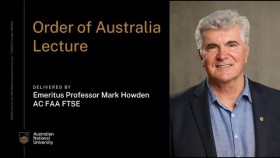Improving environmental and human health with a solutions-oriented focus
Professor Sotiris Vardoulakis’ interest in connections between the environment and human health began at a young age.
“I grew up in Athens in Greece, and in a very densely urbanised part of the city. The area had very little green space, if any, and it was very noisy. There was a lot of pollution at that time.”
“I was acutely aware of the impacts this environment was having upon me – I was suffering from the noise, the pollution, and I had allergic rhinitis.”
“There was also the impact of weather extremes, as there was an increasing frequency and severity of heatwaves and wildfires in the summer. So climate change, environmental degradation, and the impact of pollution on health were very tangible, we were experiencing them in our daily lives.”
Now as an academic, these issues are at the core of Sotiris’ work.
“My research focusses broadly on interactions between the environment, climate change, and human health. This includes interactions between environmental stressors and people.”
“This is mainly air pollution, but also includes pollution in other mediums as well – contamination of soil and water, and also chemical products in the household, such as chemical products and tobacco smoke.”
As he has progressed throughout his research, Sotiris’ focus on these issues has taken on a new angle.
“My focus has shifted from characterising, identifying and quantifying the risks to health, to actually looking into actionable solutions to improve health, and improve the environment.”
“I believe that the work on characterising the health risks from exposure to air pollution and temperature extremes has been done to a large extent, and now it is important to work on solutions – identifying technological or policy solutions, and evaluating and trying to improve them.
“This is what motivates me, and where I focus my efforts, because I feel like this is where I can really make a difference in the current situation.”
This solutions-oriented focus has carried across to other areas within Sotiris’ research as well.
“Another area of work where I am very interested in is providing holistic, systems-based solutions in the urban environment, and promoting the Sustainable Development Goals.”
“I work with colleagues who are built-environment experts, architects and engineers, transport experts, energy experts, experts on agriculture and the green environment. I find this very rewarding, working across disciplines to try to improve policy and technological solutions.”
This interdisciplinary collaboration is something Sotiris sees reflected in the work of the Climate Change Institute (CCI).
“The Climate Change Institute is open and inclusive, it’s cross-disciplinary and works across ANU. It is genuinely interdisciplinary, which is something I truly enjoy.”
Sotiris says several benefits have stemmed from becoming a member of CCI when he joined The Australian National University.
“CCI has helped me and enabled parts of my work in many different ways, through connecting with other researchers across the university, connecting with other institutions and initiatives, and having a platform to disseminate my work and the work of others.”
“It has helped me in other concrete ways, with submitting proposals for funding, or when we are looking for partners to develop a proposal, my first port of call is CCI to help me find the right kind of experts to build the research team.”
Sotiris says that he views one of the most important parts of CCI to be its credibility.
“Climate change is very politically divisive, many people have strong views, but not everyone has the credibility and the weight behind their claims. The Climate Change Institute has a very good reputation as an institute with credibility, grounded in solid science and robust evidence.”
“Genuinely, I’m proud to be a member of the Institute.”
Professor Sotiris Vardoulakis and a team of colleagues from the Australian National University, including the Bushfire Impact Working Group, have been awarded the Advocacy and Leadership Award at the Australian Public Health Conference 2020 for their work on Bushfire smoke – Public Health Communication during the Black Summer and beyond. You can read more about the award, and the work by Professor Vardoulakis and colleagues, here in an article by the Research School of Population Health.











